Related Research Articles

ETH Zurich is a public research university in Zürich, Switzerland. Founded by the Swiss federal government in 1854, with the stated mission to educate engineers and scientists; the school focuses primarily on science, technology, engineering, and mathematics, although its 16 departments span a variety of disciplines and subjects.

The Ludwig Maximilian University of Munich is a public research university in Munich, Germany. Originally established as the University of Ingolstadt in 1472 by Duke Ludwig IX of Bavaria-Landshut, it is Germany's sixth-oldest university in continuous operation.
Habilitation is the highest university degree, or the procedure by which it is achieved, in many European and non-English-speaking countries. The candidate fulfills a university's set criteria of excellence in research, teaching and further education, usually including a dissertation. The degree, sometimes abbreviated Dr. habil. or PD or D.Sc., is often a qualification for full professorship in those countries. The degree conferral is usually accompanied by a public oral defence event with one or more opponents. Habilitation is usually awarded 5–15 years after a PhD degree or its equivalent. Although in some countries Doctor of Sciences degree correlates with a position of Docent, it is closer in practice to the position of a Full Professor in the USA.
College and university rankings order institutions in higher education based on factors that vary depending on the ranking. Some rankings evaluate institutions within a single country, while others assess institutions worldwide. Rankings are typically conducted by magazines, newspapers, websites, governments, or academics. In addition to ranking entire institutions, specific programs, departments, and schools can be ranked. Some rankings consider measures of wealth, excellence in research, selective admissions, and alumni success. Rankings may also consider various combinations of measures of specialization expertise, student options, award numbers, internationalization, graduate employment, industrial linkage, historical reputation and other criteria.
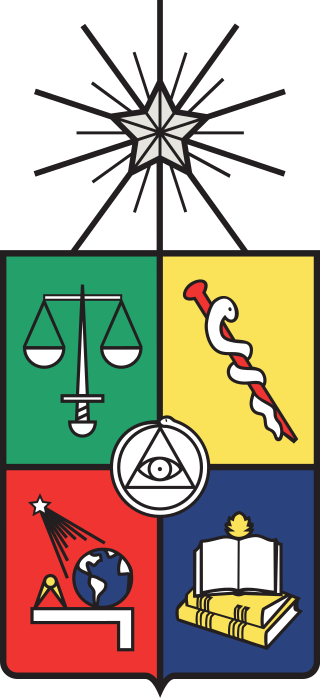
The University of Chile is a public research university in Santiago, Chile. It was founded on November 19, 1842, and inaugurated on September 17, 1843. It is the oldest in the country. It was established as the continuation of the former colonial Royal University of San Felipe (1738), and has a rich history in academic, scientific and social outreach. The university seeks to solve national and regional issues and to contribute to the development of Chile. It is recognized as one of the best universities in Latin America for its leadership and innovation in science, technology, social sciences, and arts through the functions of creation, extension, teaching, and research. It is considered the most important and prestigious university in the country.

The ENSTA Paris, officially École nationale supérieure de techniques avancées is a prestigious French graduate school of engineering. Founded in 1741, it is the oldest "grande école" in France. It is located in Palaiseau in the south of Paris, on the Paris-Saclay campus, and is a constituent faculty of the Polytechnic Institute of Paris. In 2021, 180 engineers graduated from the school.

Kasetsart University, commonly known and referred to as Kaset or KU, is a public research university in Bangkok, Thailand. It is the largest university in Thailand. It was Thailand's first agricultural university and Thailand's third oldest university. It was established on 2 February 1943 to promote subjects related to agricultural science. Since then, Kasetsart University has expanded its subject areas to cover life sciences, science, engineering, social sciences, and humanities. Kasetsart University's main campus is in Bangkhen, northern Bangkok, with several other campuses throughout Thailand.
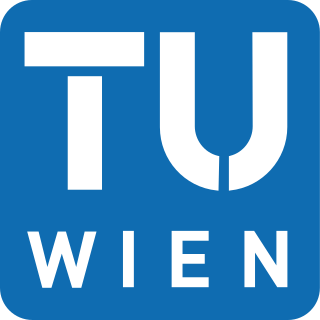
TU Wien, also known as the Vienna University of Technology, is a public research university in Vienna, Austria.

University of Erlangen–Nuremberg is a public research university in the cities of Erlangen and Nuremberg in Bavaria, Germany. The name Friedrich–Alexander comes from the university's first founder Friedrich, Margrave of Brandenburg-Bayreuth, and its benefactor Alexander, Margrave of Brandenburg-Ansbach.

Emlyon Business School is a French business school in Lyon, France, established in 1872, and affiliated with the Lyon Chamber of Commerce and Industry. A grande école de commerce, Emlyon Business School offers a wide range of academic programs, including the Global BBA, Masters in Management, M.Sc. in Finance, MBA, and Exec. MBA degrees, alongside Specialized Masters programs, and a Ph.D. program in Management. The school also provides a wide portfolio of Executive Education programs for senior executives & experienced managers.

The University of Konstanz is a university in the city of Konstanz in Baden-Württemberg, Germany. Its main campus was opened on the Gießberg in 1972 after being founded in 1966. The university is Germany's southernmost university and is situated on the shore of Lake Constance just four kilometres from the Swiss border. It has been successful in all three funding lines of the Excellence Initiative, and is therefore one of Germany's elite "Universities of Excellence", a group of prestigious universities often considered the German Ivy League. The university is ranked in top 100 worldwide in the field of social policy and administration in the 2020 QS World University Rankings, and ranked 51 in Political Science according to the 2020 ShanghaiRanking. The U.S. Department of Energy also refers to the University of Konstanz as a "small Harvard".
Haiti faces key challenges in the water supply and sanitation sector: Notably, access to public services is very low, their quality is inadequate and public institutions remain very weak despite foreign aid and the government's declared intent to strengthen the sector's institutions. Foreign and Haitian NGOs play an important role in the sector, especially in rural and urban slum areas.
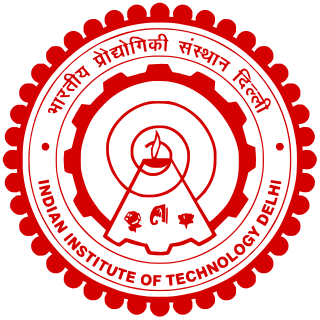
IIT Delhi, officially the Indian Institute of Technology Delhi, is a public institute of technology located in Delhi, India. It is one of the 23 Indian Institutes of Technology created to be Centres of Excellence for India's training, research and development in science, engineering and technology.
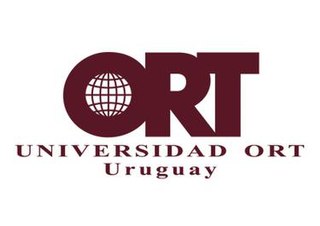
Universidad ORT Uruguay is Uruguay's largest private university. It has more than 13,000 students, distributed among five faculties and institutes.
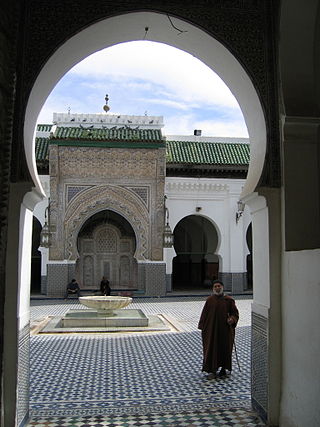
Science and technology in Morocco has significantly developed in recent years. The Moroccan government has been implementing reforms to encourage scientific research in the Kingdom. While research has yet to acquire the status of a national priority in Morocco, the country does have major assets that could transform its R&D sector into a key vehicle for development. The industry remains dominated by the public sector, with the universities employing 58% of researchers. Morocco's own evaluation of its national research system – carried out in 2003 – revealed that the country has a good supply of well trained high quality human resources and that some laboratories are of very high quality. However, the greatest gap at that point of time lied in the link between research and innovation. The educational qualifications of Moroccan researchers have increased significantly since the early 1990s. The University of Al-Karaouine is considered the oldest continuously operating academic degree-granting university in the world.
QS World University Rankings is a portfolio of comparative college and university rankings compiled by Quacquarelli Symonds, a higher education analytics firm. Its first and earliest edition was published in collaboration with Times Higher Education (THE) magazine as Times Higher Education–QS World University Rankings, inaugurated in 2004 to provide an independent source of comparative data about university performance. In 2009, the two organizations parted ways to produce independent university rankings, the QS World University Rankings and THE World University Rankings.
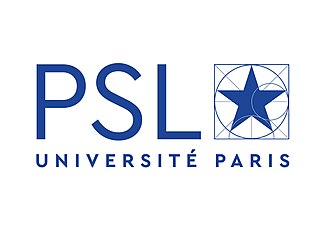
Paris Sciences et Lettres University is a public research university based in Paris, France. It was established in 2010 and formally created as a university in 2019. It is a collegiate university with 11 constituent schools, with the oldest founded in 1530. PSL is located in central Paris, with its main sites in the Latin Quarter, at the Montagne Sainte-Geneviève campus, at the Jourdan campus, at Porte Dauphine, and at Carré Richelieu.
Science and technology in Armenia describes trends and developments in science, technology and innovation policy and governance in Armenia.

In France, open access to scholarly communication is relatively robust and has strong public support. Revues.org, a digital platform for social science and humanities publications, launched in 1999. Hyper Articles en Ligne (HAL) began in 2001. The French National Center for Scientific Research participated in 2003 in the creation of the influential Berlin Declaration on Open Access to Knowledge in the Sciences and Humanities. Publishers EDP Sciences and OpenEdition belong to the international Open Access Scholarly Publishers Association.
Marie Yanick Mézile is Haitian women's rights advocate. She was the Minister for the Status of Women and Women's Rights from 2013 until January 2015. Her role involved 'strengthening the equality between women and men and also guarantee women's participation in political life'.
References
- ↑ "BRH: Faire de la recherche scientifique une activité lucrative en Haïti . Le Nouvelliste". lenouvelliste.com. Retrieved 2023-10-03.
- 1 2 https://www.researchgate.net/publication/344569951_ETAT_DES_LIEUX_DE_LA_RECHERCHE_AU_SEIN_DES_IES
- ↑ Nòdwès, Rezo (2022-06-09). "QS World University Ranking 2023. Sur un total de 2 000 répertoriées, aucune des universités haïtiennes et dominicaines figurées dans le classement - Rezo Nòdwès" (in French). Retrieved 2023-10-03.